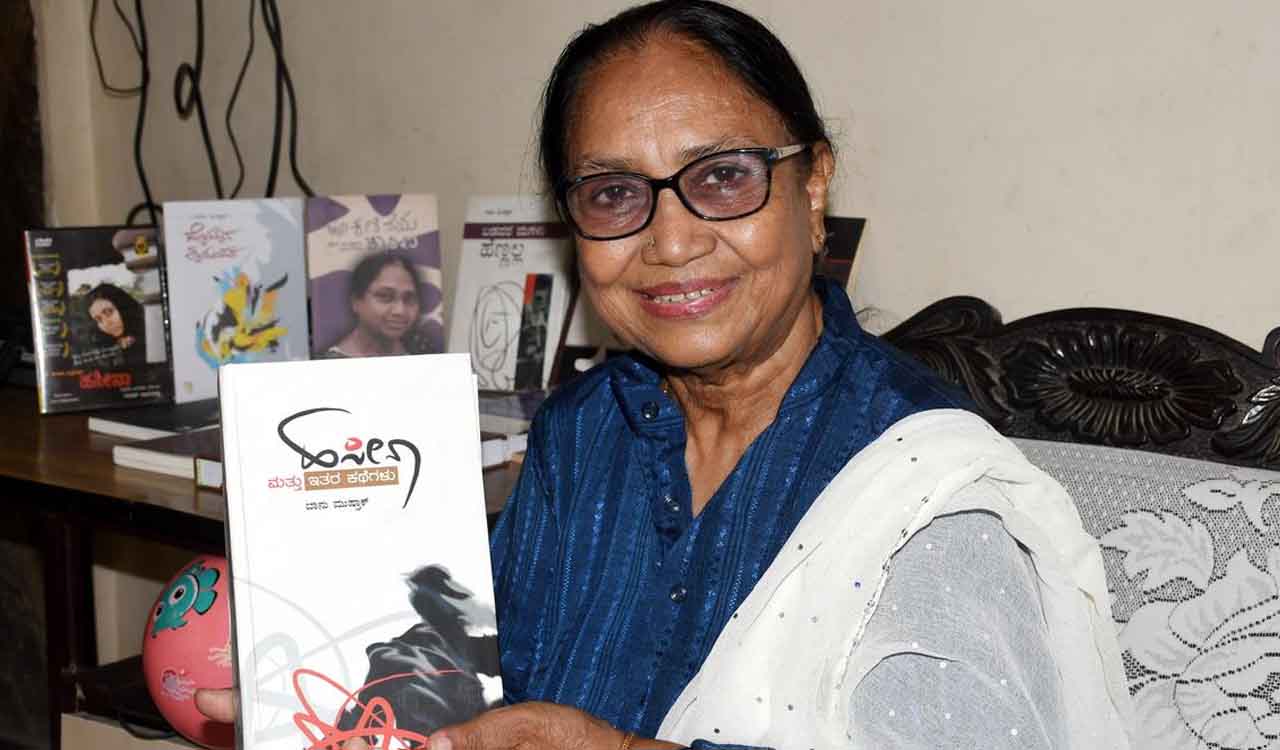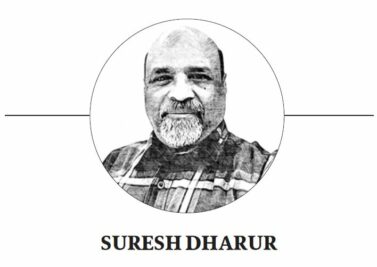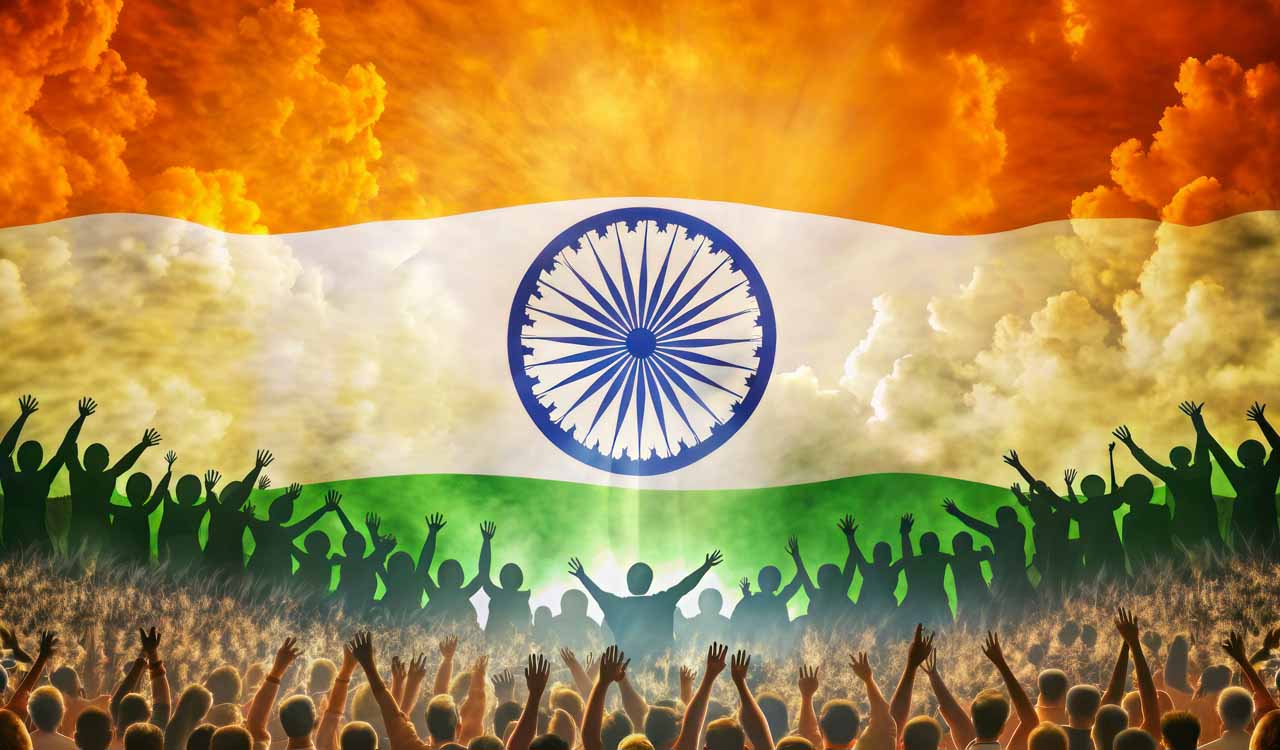Opinion: Heart Lamp and resurgence of regional Indian literature
Banu Mushtaq’s ‘Heart Lamp’, winning the 2025 International Booker Prize — the first ever for a Kannada work, marks the triumph of the power of vernacular literature over systemic biases

By Suresh Dharur
India offers a rich tapestry of regional literature, from soul-stirring poetry to genre-bending iconoclastic works. However, there is a justifiable lament that they don’t get the global recognition that they deserve due to the absence of quality translations and international promotion.
In today’s globalised world, where English gets to shape international discourse, regional literature often struggles for visibility and remains inaccessible to global audiences. Yet, it is regional literature that represents diverse cultural heritage, and preserves local traditions, dialects and worldviews.
For lovers of Indian literature lamenting the lack of global recognition for regional literature, the moment of celebration has arrived.
Banu Mushtaq’s ‘Heart Lamp’, an anthology of 12 Kannada short stories, winning the 2025 International Booker Prize —the first ever for a Kannada work — marks the triumph of the power of vernacular literature over systemic biases, smashing the glass ceiling that kept the regional literature away from finding its due place on the world stage. There are several such hidden gems across Indian languages waiting to be discovered, translated and celebrated. The time has come for the literary world to take note of them.
‘Heart Lamp’, a poignant portrayal of the trials and tribulations of ordinary Muslim families in Karnataka, has shone a light on regional literature on the global stage, both figuratively and literally. Mushtaq, a 77-year-old lawyer, journalist and activist from a humble background in Hassan district of Karnataka, has written stories that are unapologetically rooted in the lived experiences of the marginalised, and the oppressed women. Her characters fight caste, religious dogma and patriarchal violence with quiet but defiant grace.
Written in a style that is at once witty, vivid and colloquial, it is in her characters — the sparky children, the audacious grandmothers, the buffoonish maulvis and thug brothers, the often-hapless husbands, and the mothers above all, surviving their feelings at great cost — that Mushtaq emerges as an astonishing writer and observer of human nature, building disconcerting emotional heights out of a rich spoken style.
Snapshot of Struggles
In this collection of stories, spanning nearly three decades, Mushtaq captures the raw edges of human nature with care and compassion. Rooted in the everyday lives of women, these stories offer an intimate, deeply moving portrayal of resilience, struggle and the quiet strength it takes to simply exist, to push back and to dream.
The translator, Deepa Bhasthi, has done a commendable job in capturing the original’s nuances of voice, context and experience, bringing this important work into English for new readers. The translated work ensures that the soul of Kannada seeps into English without compromise. Bhasthi, who shares the prize with Mushtaq, is the first Indian translator to win the award. The Booker win is a boost for Indian regional literature, and for translations of literature in various Indian languages into English.
Mushtaq has written stories that are unapologetically rooted in the lived experiences of the marginalised, and the oppressed women. Her works mirror many of the challenges the women face, brought on by religious conservatism and a deeply patriarchal society
Mushtaq follows in the footsteps of Geetanjali Shree, a Hindi writer who won the same prize in 2022. But while ‘Tomb of Sand’ brought global attention to Hindi, ‘Heart Lamp’ gives Kannada its spotlight. This trend should open doors for India’s rich regional languages to gain a wider readership.
Translations hold the Key
The wealth of India’s regional literature has remained hidden from the world for want of an ecosystem that nurtures translation works and facilitates international access to such works. It is only through skilful and empathetic translations that the international literary world can truly experience the beauty and power of regional storytelling.
One can come up with a long list of extraordinary writers —past and present — in South Indian languages who could have won big international prizes if only their works were translated into English and had gained access to international literary circles.
To mention just a few whose works made indelible impact on the readers across generations — Gudapati Venkata Chalam, Sri Sri, Gurazada Appa Rao, Rachakonda Vishwanatha Shastri, Beenadevi, Devulapalli Krishna Shastri (all Telugu), Shivaram Karanth, UR Anantha Murthy, SL Bhyrappa, Kuvempu (Kannada), Jayakanthan, B Jeyamohan, Sujatha Rangarajan, Perumal Murugan, Ashok Mitran (Tamil), MT Vasudevan Nair, Vaikom Muhammad Basheer, Thakazhi Sivasankara Pillai and OV Vijayan (Malayalam). They all deserve a rightful place in world literature.
Voice of the Marginalised
Born into a modest family in a small town in Karnataka, Mushtaq’s struggles were similar to the ones portrayed in her works. She began writing while still in school but it would take several years before getting them published and it happened during a particularly challenging phase in her life.
After marriage, she was forced to live a life confined within the four walls of her house. She admitted in a media interview years later that she had even attempted suicide to escape from the ordeal. One of the stories in this award-winning anthology describes a similar situation faced by the main character. Her female characters in almost all the stories mirror this spirit of resistance and resilience.
Mushtaq went on to work as a reporter in a prominent local tabloid and was later drawn towards the ‘Bandaya’ (rebel) literary movement — which focussed on addressing social and economic injustices through literature and activism. After leaving journalism a decade later, she took up work as a lawyer to support her family. In a career spanning several decades, she has published a copious amount of work; including six short story collections, an essay collection and a novel.
Her writings challenging the traditions have also made her a target of hate. In a media interview, she spoke about how in 2000, she received threatening phone calls after she expressed her opinion supporting women’s right to offer prayer in mosques. A fatwa was issued against her and a man tried to attack her with a knife before he was overpowered by her husband.
Unfazed by these threats, she continued to write with fierce honesty. Her works mirror many of the challenges the women face, brought on by religious conservatism and a deeply patriarchal society. Over the decades, Mushtaq has received several notable honours, including the Karnataka Sahitya Academy Award and the Daana Chintamani Attimabbe Award, recognising her profound contributions to Indian literature.

(The author is a senior journalist based in Hyderabad)
Related News
-
Couple elected as chairperson and vice-chairperson of Nirmal Municipality
4 hours ago -
Telangana municipal polls: BRS pockets 18 municipalities
4 hours ago -
BJP draws sharp criticism for meeting Congress leaders in Hyderabad
4 hours ago -
Inorbit Mall Cyberabad hosts Valentine specials, interactive games and live performances
4 hours ago -
Jangaon chairperson election postponed amid high drama
4 hours ago -
Editorial: Showcasing India’s tech prowess
4 hours ago -
Health Minister orders suspension of absent Jogipet doctors
4 hours ago -
Telangana government initiates preparations for first fully digital Census 2027
5 hours ago




